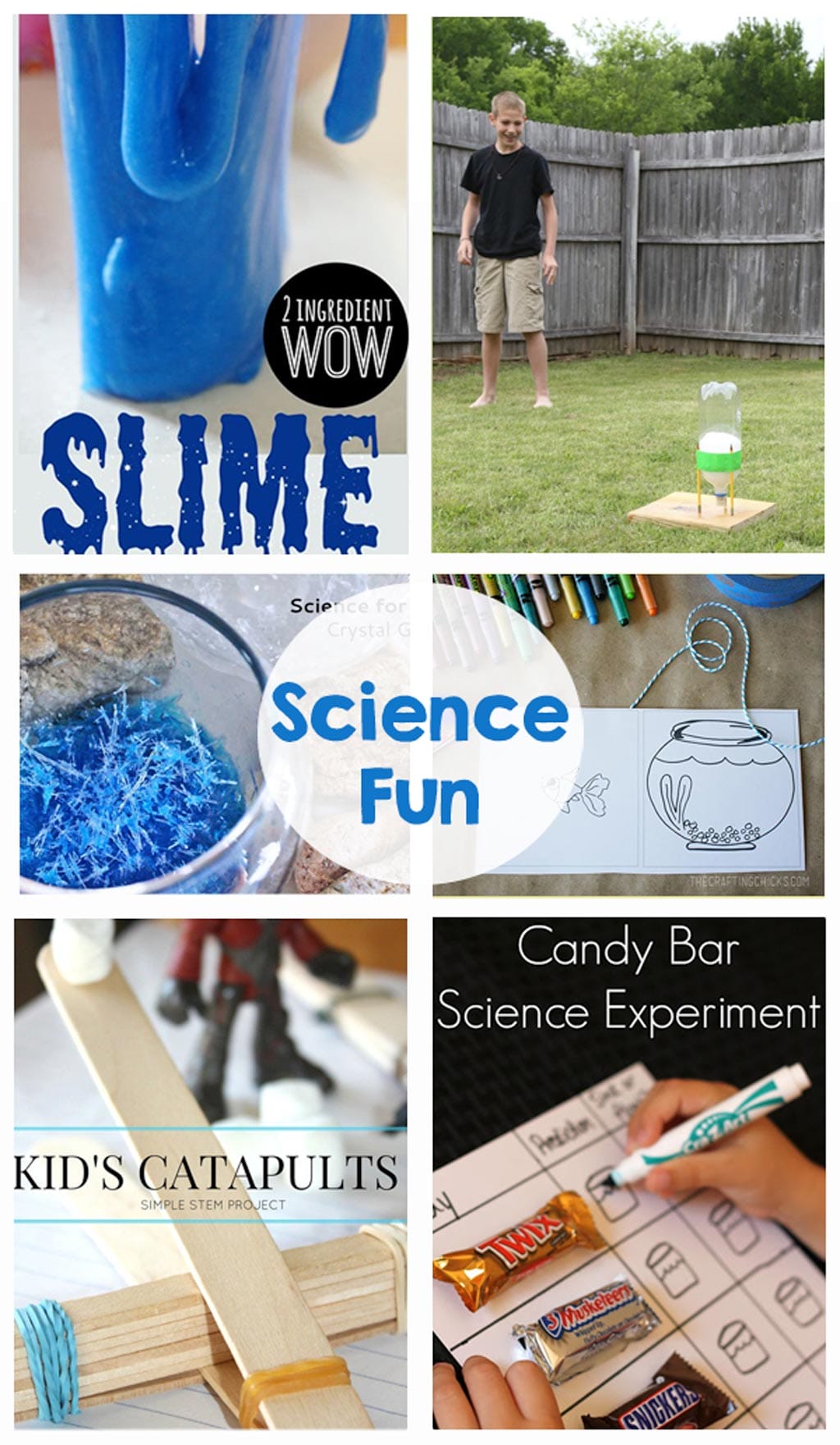Hello, friends! I’m Michele from The Scrap Shoppe, and I am super excited to be here as part of this fun summer series. As a former scientist, I love a chance stretch my science muscles so this Science Week is a perfect match for me!
I have a fun and simple science experiment to share with you today. It’s a great visual which I have always thought was the best way to teach science, and so easy that kids can do it! This is a lesson on density, the measure of quantity of mass per volume (aka how many molecules are crammed together within a unit of volume).
You only need a handful of materials, all of which you probably already have in your kitchen.
Materials:
Warm tap water in a glass jar
Cooking oil
Liquid food coloring.
To perform the experiment, add ~1/4 a cup of cooking oil to the warm water.
As you probably already know, oil and water don’t mix. Allow the oil to settle into a layer above the water. The oil is LESS dense than the water which means it is LIGHTER than the water. This means that the molecules in the oil are not packed as tightly together as the molecules in the water.
Once the two layers settle out, add food coloring drop by drop.
The food coloring will fall through the oil and settle where the oil and water meet, but still within the oil layer. Food coloring has a density HIGHER than the oil, making it more similar to the density of the water.
Eventually the density of the food coloring will pull it through the oil layer and into the water. Once it reaches the water, it begins to mix with a fun “explosion” of color!
I made a short little video to show the experiment in action. It’s less than a minute long so give it a peek. I’m pretty sure you and your little ones are going to want to try it after you see it! My kids were mesmerized.
This photo perfectly capture the various stages of the food coloring falling out of the oil and into the water, from the initial drop to the stages of explosion.
A little secondary lesson you can try: Temperature can affect density. We used warm water for this experiment. Try it with cold water. It slows down how quickly the food coloring falls into the water. What do you think hot water will do?
Not too difficult right? Science is fun, y’all!







[…] Water Fireworks from The Scrap Shoppe […]